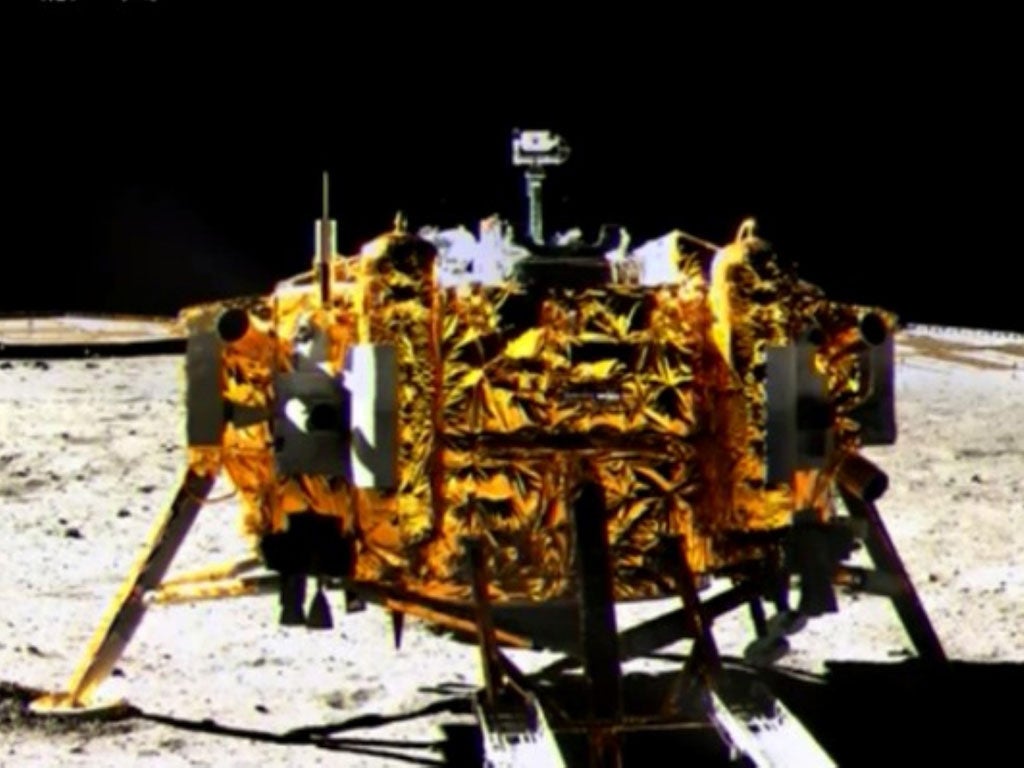2013 - the year in review: Is there life on Mars? watch this space
As China eyes a manned mission to the Moon, Nasa’s Curiosity has found proof that there was once water – and thus potentially simple life – on the Red Planet

Your support helps us to tell the story
From reproductive rights to climate change to Big Tech, The Independent is on the ground when the story is developing. Whether it's investigating the financials of Elon Musk's pro-Trump PAC or producing our latest documentary, 'The A Word', which shines a light on the American women fighting for reproductive rights, we know how important it is to parse out the facts from the messaging.
At such a critical moment in US history, we need reporters on the ground. Your donation allows us to keep sending journalists to speak to both sides of the story.
The Independent is trusted by Americans across the entire political spectrum. And unlike many other quality news outlets, we choose not to lock Americans out of our reporting and analysis with paywalls. We believe quality journalism should be available to everyone, paid for by those who can afford it.
Your support makes all the difference.It was the year that China went to the Moon, America continued to explore the surface of Mars and Britain won a place on Europe’s manned space programme with a candidate astronaut who instantly became known as “Major Tim”.
If space is the final frontier, then China wants to show it can reach out and touch it. This month, the world’s most populous nation successfully landed a space probe on the lunar surface in the first “soft touchdown” on the Moon since 1976.
Using retro-rockets to soften its descent, the Chang’e-3 spacecraft landed its own lunar probe in the Mare Imbrium plain in preparation for an exploratory trek by a small solar-powered rover.
China has come a long way since its first manned space mission 10 years ago and shows every sign of completing its ambition of sending astronauts to the Moon. As one commentator remarked: “It’s very possible the next person to walk on the Moon could be Chinese in 15 years’ time.”
It is widely assumed that a permanent lunar base is the next logical step for the major space nations, perhaps in some kind of global collaboration akin to the International Space Station. From such a base, a manned mission to Mars is perhaps more feasible.
Tantalising evidence that Mars was once a water-filled, habitable world continued to emerge in 2013. The Nasa’s Curiosity rover discovered smoothly eroded pebbles in rock formations known as conglomerates, which were almost certainly the result of water erosion in fast-flowing streams.
“This is the first time we’ve seen water-transported gravel on Mars,” said William Dietrich of the University of California, Berkeley, who worked on the project.
Later on in the year, Curiosity topped this discovery by finding mudstone, which is formed by the silt of a still body of water. Curiosity had found the bed of an ancient lake where life could have emerged some 3.8 billion years ago, Nasa said.
This was the strongest evidence yet that Mars was once a habitable planet – not that it had life, but that it had the conditions necessary for simple, microbial life. As Sanjeev Gupta of Imperial College London, one of the researchers on the Curiosity mission, said: “This is dramatic. We have effectively found what was once a standing body of water and although we don’t know how long it was there for, liquid must have been stable on the Martian surface for at least thousands or even millions of years.”
Final proof that life once existed on Mars may have to wait until a manned mission in 20 or 30 years’ time. Although China and America are at present the most likely nations to go, Europe at least has its own plans for more limited space missions.
Major Tim Peake, a former Army Air Corps officer, was chosen to be part of the team to undergo astronaut training. He will be only the second British-born astronaut to go into space under the British flag. And the advice that Major Tim received from the first, Helen Sharman, was simple enough: “Don’t forget to look out of the window.”
Join our commenting forum
Join thought-provoking conversations, follow other Independent readers and see their replies
Comments